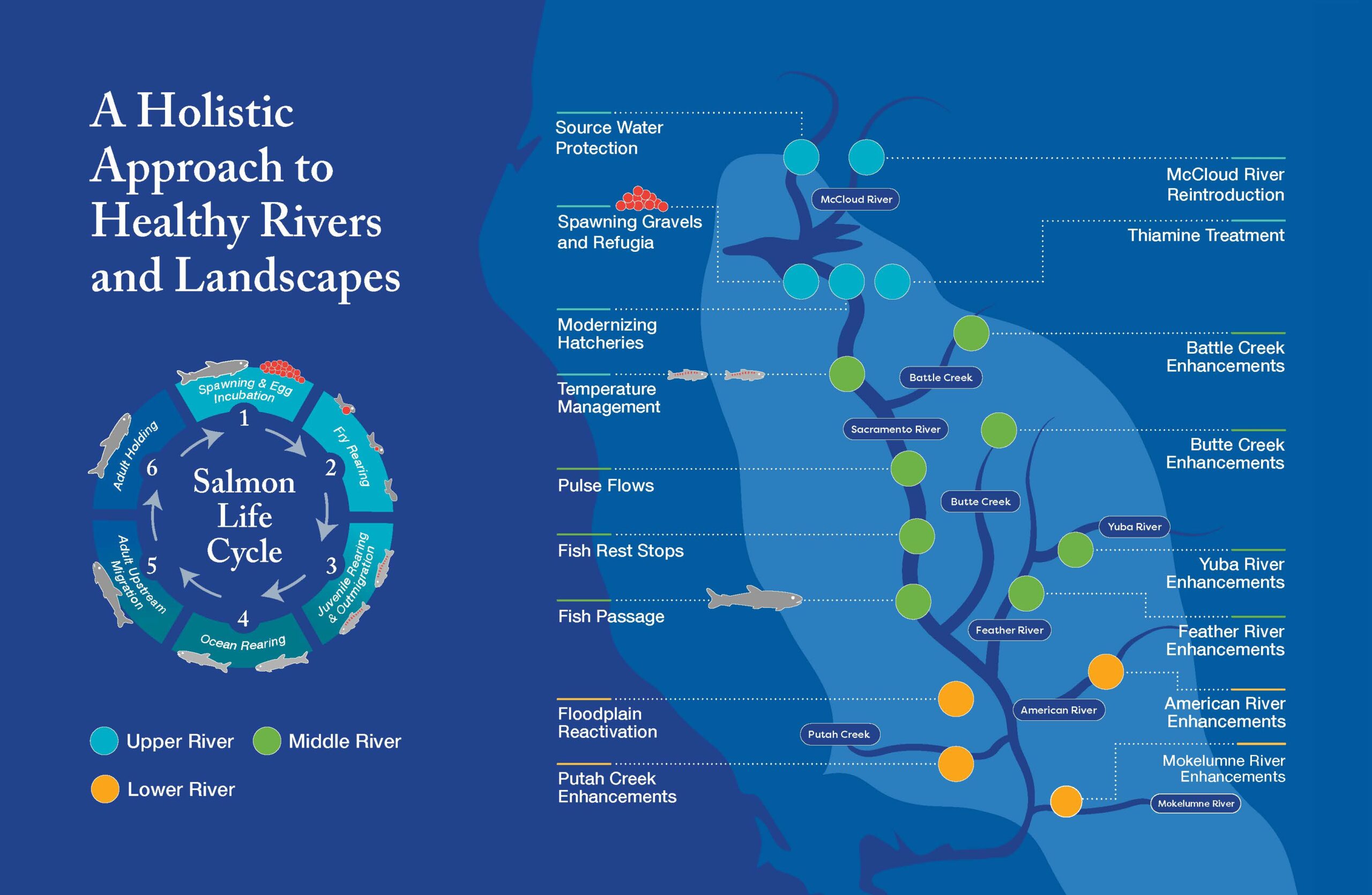By Todd Manley
The past few weeks we have seen catastrophic wildfires in the Sierra Nevada Range, most notably the Park Fire, which has devastated both rural communities and the landscape to such an extent that scientists are concerned with the impact that the fires will have on the limited number of creeks that provide essential habitat for the threatened population of spring-run Chinook salmon.
Right now, crews are working hard to contain the fires and the priority is to ensure public safety. As we think about the current fires and the many fires that have surrounded the Sacramento Valley over the past decade, there are two types of actions underway to address these concerns as we look to the future.
First, we now know that California’s historic strategy of suppressing wildfires has created the unintended consequence of promoting over-dense forests that provide the fuel that creates the devastating fires that are now frequent occurrences in the state. Learning from past practices, water managers in the Sacramento Valley are engaged in proactive watershed restoration programs, such as Placer County Water Agency’s French Meadows Forest Restoration Program in the American River watershed and the Yuba Water Agency’s Watershed Resilience Program. These programs, which need to be scaled-up, will help avoid devastating fires over time and they will help improve conditions for salmon and other species in the rivers that wind through these watersheds. These watershed efforts are part of a comprehensive nature-based approach to manage water and land resources from Ridgetop to River Mouth to provide nourishment and sustenance from the fields, habitats for fish and wildlife, high-quality drinking water, recreation and a special quality of life in the region.

Second, there are similar and on-going collaborative efforts in the Sacramento Valley to help recover Chinook salmon through a comprehensive program to restore habitat to benefit all freshwater life-cycle stages for all four runs of Chinook salmon that reside in the region. This year salmon are being challenged by the fires. In the long-term, we know that salmon are challenged by our changing climate and we need to take every action to give them a chance and to help with survival. The holistic approach to salmon recovery in the Sacramento Valley shows the efforts underway in every part of the region to improve conditions for salmon, which will be necessary as their watersheds are on fire and pose another challenge to their existence.

We wish the best for the people and the amazing communities affected by these fires and appreciate the efforts underway to help avoid these fires in the future and to help salmon as they navigate through their different life stages in the Sacramento Valley.




